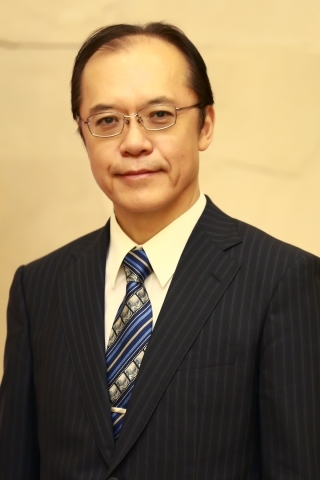Ambassador Kikuta's Interview: MILAN 2023 (February, 2024)
2024/2/29

Ambassador Kikuta’s interview was published on MILAN Magazine issued by JAAN (JICA Alumni Association Nepal) in February 2024.
An Interview with H.E. Mr. KIKUTA Yutaka
1. What is your opinion about Japan- Nepal diplomatic relationship? Where is it heading towards?
I join many of my Nepali friends to say that Japan-Nepal diplomatic relationship is excellent, based on long-time friendly people-to-people exchange and development cooperation. We celebrated 120 anniversary of student education exchange in 2022 and the golden jubilee of JAAN in 2023.In coming years, following Osaka Kansai Expo in 2025, we are going to celebrate 70th anniversary of diplomatic relationship in 2026, the year happens to be the year when Nepal will graduate form the LDC status. So, we will have a lot of opportunities to celebrate, to work together for further strengthening of our existing cordial relationship.
The presence of Nepal in Japan is rising as the number of Nepali residences is increasing there. I hope the interest in Japanese business sectors on Nepal will also get higher so that we will have even closer relations in business, commerce, trade, and investment sectors in the future.
2. How do you assess Government of Japan’s ODA Assistance to the development endeavor of Nepal?
The stability and peace in South Asia are of foremost importance for Japan as well as the entire international community. Nepal is situated in the pivotal spot of it. That is why Japan has been supporting the progress of democracy and socio-economic development in Nepal for long. Japan’s current country development cooperation policy for Nepal lists the following three priority areas, bearing in mind LDC status graduation by 2026 and consistency with SDGs, among others.a) Economic Growth and Poverty Reduction
-Transport Infrastructure, Power & Energy, Water Supply & Sanitation, Improvement of Private Sector, Agriculture, Education, Healthcare, Social Service, etc.
b) Disaster Prevention and Climate Change Measures
-Disaster Risk Management, Resilience, Forest Resources, etc.
c) Enhancement of Governance and Democratization
-Legislation, Governance Capacity of Federal & Local Governments as well as Communities, etc.
I think it is Japan’s strength of development cooperation that we have variety of aid schemes to decently address specific needs in these various sectors. Our schemes include loan, grant, technical assistance through JICA, Grass-Roots Grant (GGP) & NGO support by the Embassy, contribution to international organizations, scholarship for human resource development.
3. How has been your impression about being an ambassador of Japan to Nepal?
Of course, it gives me an immense pleasure. I am enjoying interaction with lovely people, food, and the beautiful nature. I am very much appreciating this country’s culture, tradition, diversity, with due respect for people’s efforts toward the fundamental socio-economic transformation.Having said that, it would be remiss if I did not mention that in the implementation of our assistance, we often face some challenges caused by Nepali side. I hope Nepal can show us her ability of problem solution, not problem creation. Besides the official development assistance, this is even more important when it comes to private sector relations such as business, commerce, trade and investment.
4. How do you feel about JAAN? How has it been contributing to development endeavor of Nepal?
As I say on many occasions, we the Japanese firmly believe that human resources development is the foundation of nation building. JAAN is an excellent representation of this concept. JAAN members keep within themselves what they acquired from their experience in Japan provided by JICA and make the best use of it for their better lives, thus leading to the development of Nepal. JAAN has a strong networking capacity, good leadership, and companionable atmosphere. It is a wonderful organization not only for our friendly bilateral relations but also for the development of this country. After all, the development of Nepal depends on the people of Nepal.5. Do you think that JAAN has been able to further reinforce the tie between Japan and Nepal?
The answer is big yes. On the auspicious occasion of 50th anniversary, I would like to express my great appreciation for the role JAAN has played to strengthen the tie between the two countries since its establishment. Foreign Minister’s Commendation bestowed to JAAN in 2023 tells all about it. I am confident that JAAN will continue to be one of the most important associations to represent our close tie for the coming future, too.I feel that JAAN has inclusive mindset, not exclusive, so I hope JAAN will expand its excellent collaborative relations with other organizations of development, welfare, business, etc., in this country. I am grateful that JAAN is an enthusiastic fan of Japan, so I also hope that JAAN will play a catalyst role to enhance Nepal fan among Japanese people both in Nepal and Japan. The Embassy of Japan in Nepal would be happy to assist anything possible to that effect.
6. How do you feel that ties between Japan and Nepal can be further tightened?
Firstly, I feel people-to-people exchange has entered a new phase in these days. In the past, only the selected students or business elites could go to Japan. Nowadays, a large number of workers are migrating to Japan, often accompanied by their family. As the presence of Nepal in Japan increases, the ties between the two countries will be certainly enhanced. On the other hand, they are not necessarily familiar with Japanese language, culture, or social system. I hope that, with the enhancement of mutual supporting institutions of any types, every one of Nepali people will live happily in Japan.Secondly, economic relations should come more in sight in the future. While the Embassy and JICA here are exploring the ways to assist private sectors, I hope related organizations, the government, business circles in Nepal will be more aware that Nepal should have comparative advantage as an attractive destination in terms of profitability and ease of doing business for Japanese private sector. Rather than to ask, to request, to urge others for help, they need to think how they can erase obstacles and what kind of incentives they can provide to attract Japanese capital and technology.
